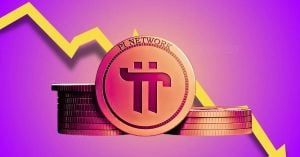Canada celebrated its thrilling overtime victory against the United States at the 4 Nations Face-Off Championship on February 20, 2025, at TD Garden, Boston. The match, which ended 3-2, saw Canadian superstar Connor McDavid score the decisive golden goal, igniting celebrations across Canada and among Canadian fans.
Prime Minister Justin Trudeau marked this significant victory with a pointed message directed at U.S. President Donald Trump, stating emphatically, "You can’t take our country — and you can’t take our game." Trudeau's comment came just as tensions between the two countries were already heightened due to Trump's recent statements belittling Canada's sovereignty, including his jest about Canada potentially becoming the 51st state of the U.S.
The match itself unfolded with considerable intensity, reflecting the fierce rivalry between the two nations. It required overtime, marked by stellar performances, particularly from Canadian goaltender Jordan Binnington, who made several key saves to keep Canada competitive.
Prior to the game, Trump had stirred the pot with remarks posted on Truth Social, boasting about calling Team USA to motivate them toward victory. He arrogantly stated, "...which with FAR LOWER TAXES AND MUCH STRONGER SECURITY, will someday... become our cherished, and very important, Fifty First State." Such comments have not only antagonized relations between the two leaders but have also underscored the cultural friction embodied by the competition of America's and Canada’s national sports.
Following the game, Trudeau's social media post was seen both as celebratory and as a political statement amid this backdrop of contention. Hockey fans from both nations engaged passionately, with American supporters booing the Canadian national anthem as payback for Canadian fans booing the American anthem during previous matchups. This reciprocal animosity has turned sports events not only about competition on the ice but also about national pride and political posturing.
Canadian singer Chantal Kreviazuk, who performed "O Canada" at the game, changed the lyrics to incorporate harsh commentary on Trump’s remarks about Canadian annexation, altering the line "in all of us command" to "in only us command." This alteration stirred debate about the appropriateness of mixing national pride with political statements.
The emotional charge continued as players from both teams shared their reactions to the hostility displayed by fans during the national anthems. NY Rangers forward JT Miller noted, "I think we like it... it fires us up more than anything," commenting on the rivalry's role as motivation for players. Meanwhile, USA alternate captain Matthew Tkachuk expressed dissatisfaction with the booing, simply stating, "I didn’t like it. That’s all I got."
The 4 Nations Face-Off Championship provided far more than just entertainment; it played out as theater illustrating the complex relationship between Canada and the U.S. Amid Trump's taunts and Trudeau's retorts, the sports arena transformed from mere ice and stands to the frontline of national identity. Canadian fans filled the TD Garden, uniting to chant “O Canada” with renewed vigor, asserting their national pride amid external pressures.
Trump's earlier remarks suggested he would push for new tariffs against Canadian goods, complicity contributing to the animosity felt during the hockey tournament. Trudeau and his government have expressed their concern over such economic threats, especially as the relationship between the two nations has been influenced by external political pressures and sporting rivalries.
Canada's victory, underscored by Trudeau's assertive social media sentiments, reaffirmed the nation’s deep connections to hockey. Often described as the sport synonymous with Canadian identity, games like these highlight how sports transcend mere competition, becoming symbols of cultural ownership and pride.
Canada's triumph over the U.S. in the 4 Nations Face-Off Championship stands not just as another game score, but it echoes through the political corridors between the two countries, fueling discussions of national identity, pride, and the weight of political rhetoric on sports.



